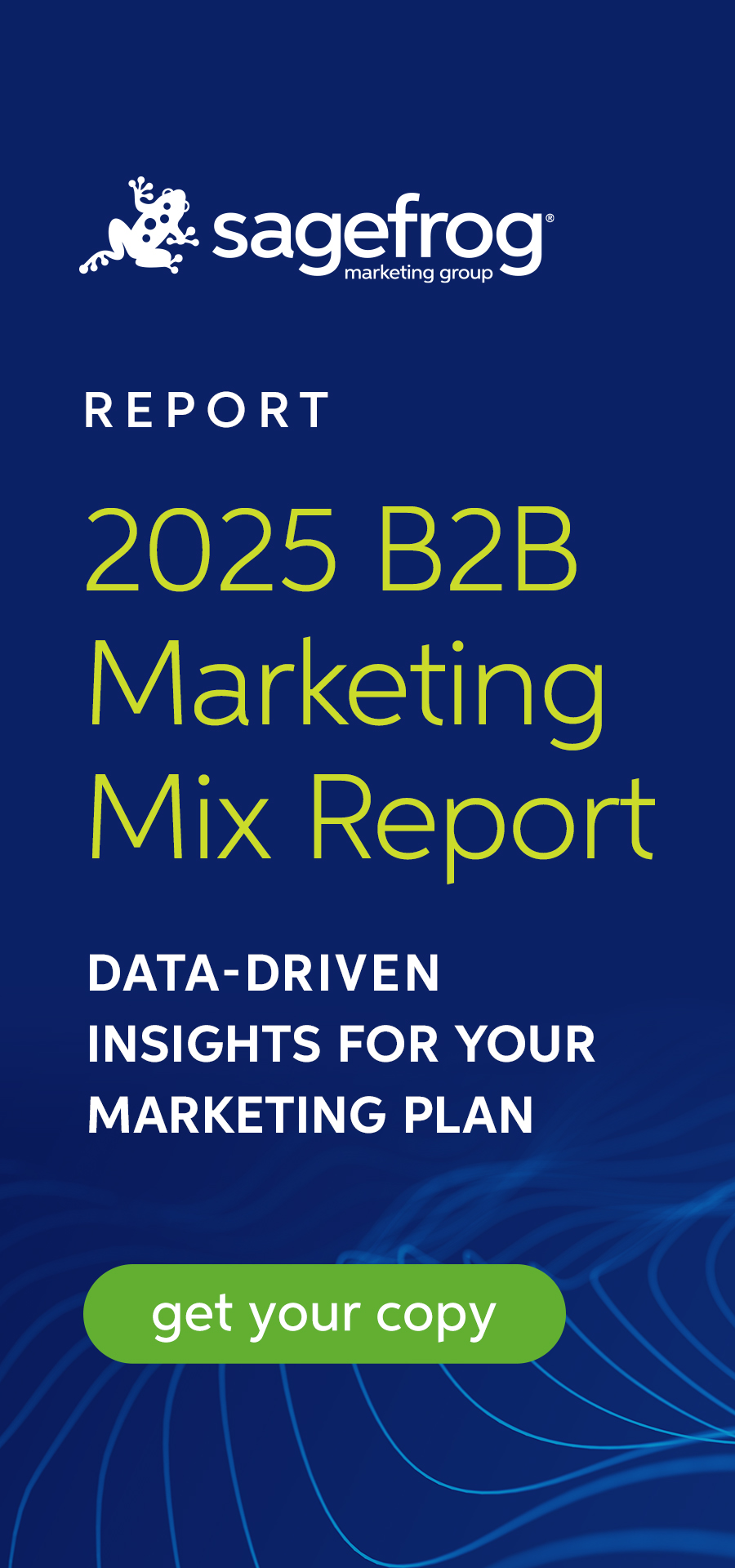Marketers love to lean on the phrase “now more than ever,” but in this case, it’s true: Now more than ever, AI is poised to be a powerful catalyst for change in the B2B healthcare market. Artificial intelligence has already ushered in a new era of efficiency and innovation in the last few years, but only recently has the healthcare community made a concentrated effort to let it in, modifying traditional ways of working, developing products, and delivering services to slowly embrace AI and all the benefits it can offer.
AI is no longer the shiny, new, and untested tool to shy away from; more people view AI as a transformative force with the potential to reshape the very fabric of the B2B healthcare space. Medical device companies, payers and health plans, healthcare software developers, and other members of the bustling B2B healthcare market are eager to experiment with artificial intelligence in 2024 to revolutionize everything from enhancing diagnostics to streamlining operations.
Explore 5 of the most exciting AI applications for B2B healthcare companies in 2024 driven by generative AI, explainable AI (XAI), machine learning (ML), and other cutting-edge technologies.
Skip to a Section
- Improving Telehealth Services
- Accelerating Patient Care
- Expediting Discovery & Development
- Bolstering Security & Transparency
- Supporting Strategic Collaboration
1. Improving Telehealth Services
Telehealth is still rapidly evolving and set to become more ingrained in healthcare delivery in 2024. AI-driven telehealth tools, virtual assistants, and chatbots can enable access to healthcare services, help educate and explain diagnoses and treatments to patients, contribute to an engaging patient experience, and promote patient adherence to medication usage and treatment plans. ChatGPT, explainable AI, and similar tools may even foster greater trust between providers, patients, and technology companies by moving beyond their role in consultation to support routine care.1
2. Accelerating Patient Care
Specialized AI systems—with capabilities that go beyond general AI—have the potential to tackle many medical challenges for healthcare professionals, including disease diagnosis, treatment planning, and patient management. The B2B healthcare market is seeing the rise of adaptable solutions designed to align with medical protocols, interpret medical billing and codes, comprehend healthcare regulations, and uphold patient safety standards.1 Purpose-built AI can ease administrative burdens and help teams accelerate patient care in countless ways to improve workflows, support decision-making, avoid service delays, minimize patient leakage, and ultimately improve health outcomes.1
- Improve virtual health assistants and chatbots
- Fast-track specialist referrals and medication approvals
- Predict potential health issues and outcomes
- Enable early disease detection and intervention
- Develop personalized treatment plans
3. Expediting Discovery & Development
B2B healthcare companies involved in pharmaceuticals or medical devices can leverage AI to expedite research, discovery, and development—reducing the time it takes to bring new medications and products to market and bring life-changing therapies to patients. AI algorithms are able to quickly analyze vast datasets to screen compounds, identify potential drug candidates, predict efficacy, and streamline early-stage drug development. Machine learning models can optimize clinical trial designs, determining suitable patient populations and improving overall trial efficiency. And in the realm of medical devices, AI can facilitate product design and prototyping, aiding in the identification of cost-effective materials and configurations.
4. Bolstering Security & Transparency
AI plays a crucial role in fortifying security and cultivating transparency within the B2B healthcare industry. A variety of AI tools can be used to implement advanced cybersecurity measures that protect sensitive healthcare data or ensure compliance with regulatory standards to create a strong foundation for data management and patient privacy. Through encryption, authentication, and continuous monitoring, AI empowers healthcare organizations to develop robust security protocols, establish credibility among stakeholders, and navigate the intricate landscape of healthcare regulations with greater clarity and confidence.
5. Supporting Strategic Collaboration
Artificial intelligence is changing the way healthcare professionals collaborate across teams, amongst other providers, and with supporting service and technology entities. AI enables seamless integration and exchange of information across diverse healthcare platforms through advanced data analytics and interoperability solutions—which allows for a more holistic understanding of patient data, treatment outcomes, and operational efficiencies. But collaboration also goes beyond the work of these hands-on teams delivering care. Healthcare organizations can realize their own potential simply by collaborating with B2B companies that help them strategically employ the use of AI. Their shared vision is for a future in which technology and healthcare seamlessly converge for the betterment of people everywhere.
Like with any new tactic, there are always risks involved when experimenting with artificial intelligence. But these smart applications of AI may contribute to a more secure, efficient, patient-centric, and cost-effective healthcare ecosystem. The possibilities are endless. As B2B healthcare companies embrace these advancements, they are taking part in a future where artificial intelligence becomes an invaluable partner in improving lives and building a healthier future for all.
Interested in leveling-up your B2B healthcare company in 2024? Get to know Sagefrog and what it’s like to navigate the dynamic healthcare space with an experienced marketing agency at your side. Contact us to learn more about our branding and integrated marketing services.
Sources



